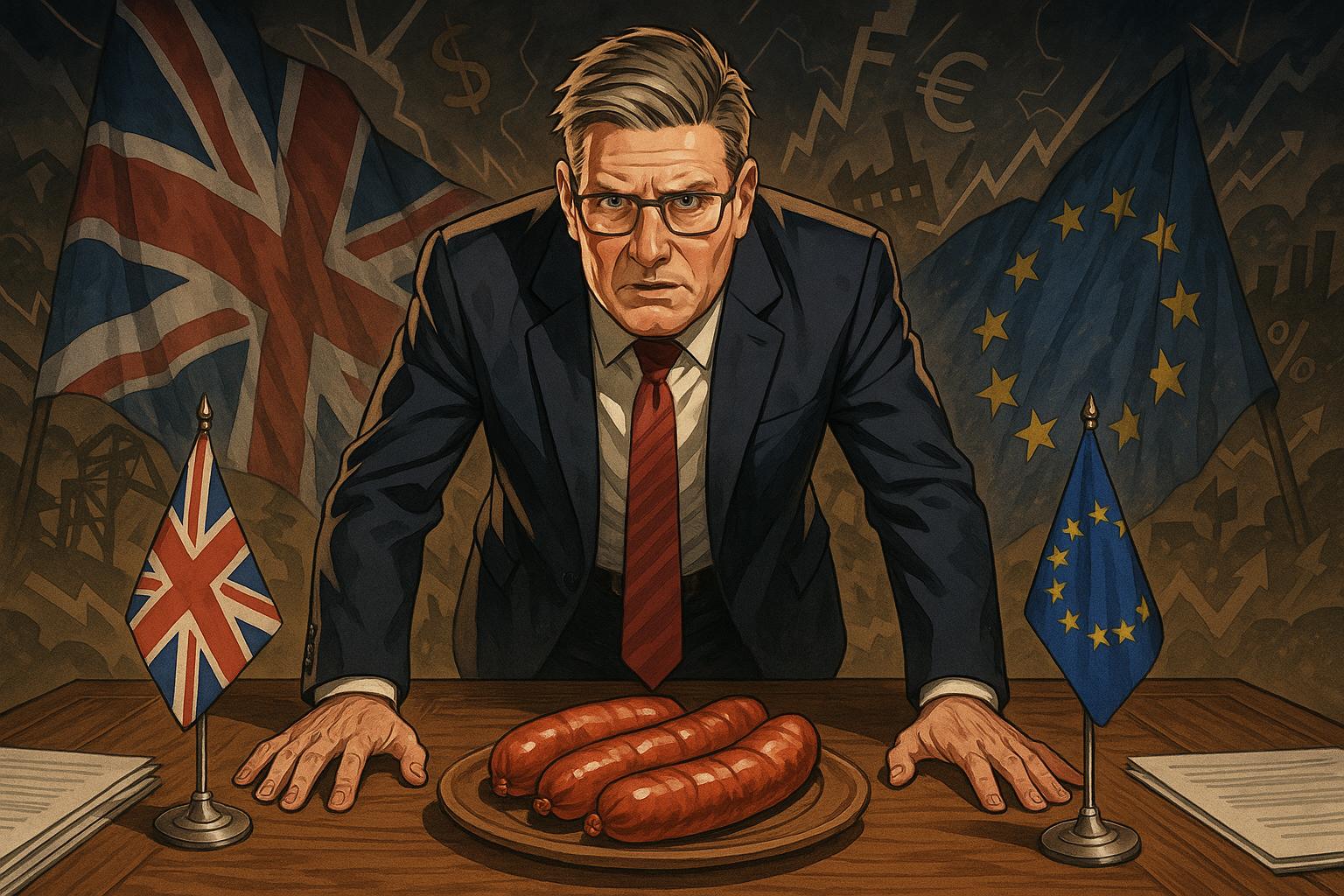As the discussions surrounding a Brexit reset unfold, Sir Keir Starmer is standing at a critical juncture in the UK’s relationship with the European Union. With ongoing negotiations gaining momentum, prominent voices in the political landscape, including Reform UK's deputy leader, have voiced concerns over how these developments may reshape quintessential British food products, particularly sausages.
Starmer’s government is now entering what could be the final phases of negotiations with Brussels, amid growing accusations from critics that he is compromising key aspects of Brexit. A primary concern is the potential impact on the food industry, as changes in EU regulations—set to come into effect in October—could necessitate compliance with stricter rules regarding processed meats. Industry representatives fear that ham and bacon producers may find themselves bound to EU standards, which could radically alter the production of beloved British sausages.
While the UK has so far opted not to align with these incoming EU standards, this stance may shift depending on the outcomes of the negotiations. Currently, discussions about food standards are reportedly taking place at the highest levels of government, and they are expected to be a central focus at the upcoming summit between Starmer and EU leaders.
This summit is poised to address a multitude of pressing issues beyond food standards, including the realms of defence, security cooperation, and energy trading. A veterinary agreement that streamlines border checks for agricultural products is also on the agenda, which could benefit UK farmers but invariably entails some level of regulatory alignment with EU practices.
Furthermore, the fishing industry is set to take centre stage during these negotiations. Leaders from the fishing sector have urged Starmer to resist EU pressures for extended fishing rights, citing the substantial economic contribution of £500 million that EU fishing fleets make annually from UK waters. With the post-Brexit agreement set to expire in 2026, the stakes have never been higher. Starmer’s optimism about forging beneficial international trade relationships, underscored by recent partnerships with countries like India and the United States, also shapes the context of these discussions.
In tandem with fisheries, the possibility of a youth mobility agreement is being explored, a move that could offer new avenues for young people from the EU to work and study in the UK. However, the government has assured the public that any such agreement will not resemble the pre-Brexit freedom of movement provisions. Critics, including prominent figures from Reform UK, have warned that this step could set a precedent for re-establishing full freedom of movement, a concern that Starmer has firmly rebutted.
The ongoing negotiations reflect a delicate balancing act; while striving for mutually beneficial outcomes, Starmer faces substantial pressure from both his supporters and opponents. Conservative Party members have raised alarms about what they perceive as concessions that could undermine UK sovereignty, including potential alignment with EU regulations and oversight by the European Court of Justice (ECJ).
In this evolving scenario, the proposed agreements—including a possible defence pact and an enhanced framework for food trade—highlight the UK’s evolving diplomatic landscape post-Brexit. Yet, as both sides continue their negotiations, the complexities of aligning regulatory frameworks while maintaining national interests become increasingly evident. As the summit approaches, the outcomes could reshape the future of Britain's relationship not just with the EU, but also with its own domestic industries and standards.
The road ahead remains fraught with challenges, but the dialogue between the UK and the EU marks a significant step in redefining their partnership. Stakeholders from various sectors are watching closely, recognising that the consequences of these discussions will resonate far beyond the conference table, affecting the everyday lives of citizens and the integrity of British exports for years to come.
Reference Map
- Paragraphs 1, 2, 3, 4, 5, 6, 7, 8.
- Paragraph 4.
- Paragraphs 5, 6.
- Paragraph 5.
- Paragraphs 6, 7.
- Paragraph 6.
Source: Noah Wire Services
